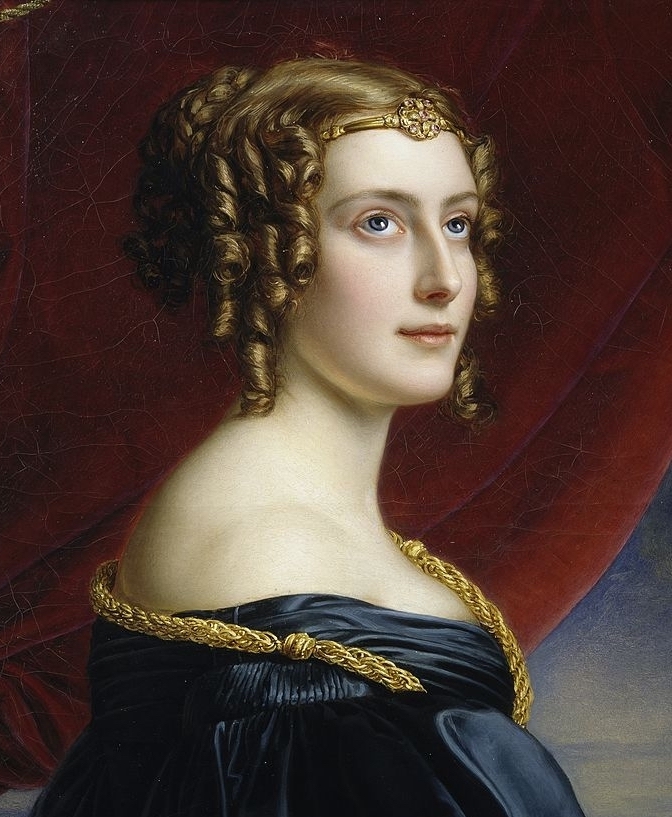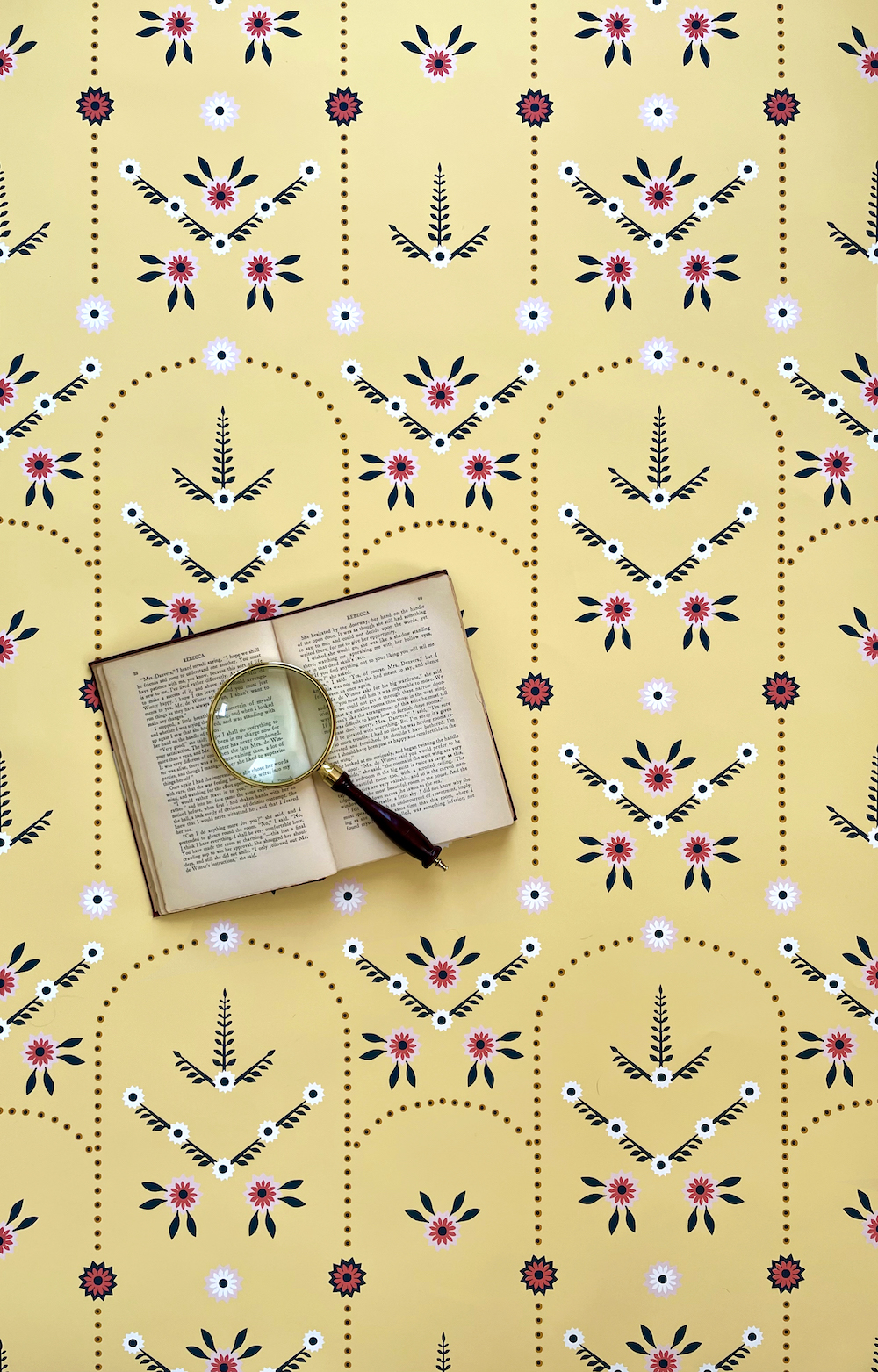
Detail of Jane Digby as Lady Jane Ellenborough, painted in 1831 by Joseph Karl Stieler for the Schönheitengalerie of King Ludwig I of Bavaria.
Born in 1807, Jane began her life as a spirited, educated, wealthy young Englishwoman. At 16, her introduction at court stirred the hearts of many hopeful men, one of whom—Tory politician Lord Ellenborough—would pull her into her first marriage.
After discovering her new husband had a long-term mistress, Jane—frustrated and refusing to turn a blind eye (which was the expected wifely response)—brazenly commenced several affairs of her own. While none of these relationships were lasting, the turmoil they provoked ultimately gave her husband cause to file for divorce.
Divorce in the early 1800s was rare, and the proceedings were both public and discriminatory. But Jane didn’t cower; instead, she left England behind and moved her romantic conquests into the courts of Europe where she commenced an unblushing tour of the continent’s most eligible men. She was a woman who loved to love, who counted Prince Felix of Schwarzenberg and King Ludwig I of Bavaria, as well as a Greek count, a German baron, an Albanian bandit, and an array of generals, war heroes, and other infamous gents amongst her entanglements. The result was two more marriages (followed by two fresh divorces) and six children (three of whom survived infancy and were being raised by their respective paternal families).
Jane was now 46, untethered, and seeking a life beyond the tumult of her past. She spoke nine languages, was a fearless horsewoman, and had the open heart of a true traveler. She set her sights on the ancient city of Palmyra, made famous by its beloved warrior queen, Zenobia, whose defiance against Rome is legendary to this day. Unknowingly, when Jane left Europe for the Middle East she was venturing into the most fulfilling era of her life.
Her journey to Damascus—the last stop en route to Palmyra–was stirring. She traveled with bedouins and was immersed in a new world of scent, color, food, and history. She relished her evenings sleeping in the desert, and learned to comfortably ride a camel while writing in her notebooks. And here, most importantly, she met Sheikh Medjuel el-Mezrab.
20 years her junior, Medjuel was a respected member of the Mezrab tribe, a bedouin group who knew the perilous routes to and from Palmyra by heart. It was Medjuel and his men who guided Jane on her initial journey, trading stories and sharing their hereditary knowledge of the desert across 150 open miles of sand. And it was after this magical trip, one that Jane declared was ”the greatest adventure, probably, of all my journeys,’’ that Medjuel became the final man to hold Jane’s heart.
Within a year the two were married under Muslim law, and went on to spend the rest of their days between the ornate villa Jane built in Damascus and, to her preference, among the ever-shifting sands of Beduin desert life. In her marriage to Medjuel, Jane had finally found her place and her people. She comfortably assimilated into Medjuel’s tribe—adopting the flowing robes and black-rimmed kohl eyes of the women around her—without hesitating to jump into the fray as needed. Over the years she worked alongside her husband as nurse, teacher, translator, guide, and veterinarian, never balking at challenges that desert life presented.
On Jane’s passing at the age of 74, Medjuel had a block of pink limestone carried from her beloved Palmyra and placed it on her gravesite. On the side, he hand-wrote her Arabic name in charcoal to be carved into the face by a local stone mason. One last loving act, etched in time and still visible on her grave to this day.
Grow House Grow’s hand-printed wallpaper, Digby, is an homage to Jane and her adventures. Available in three colorways, this floral is both playful-yet-classic. Explore her pattern at growhousegrow.com


